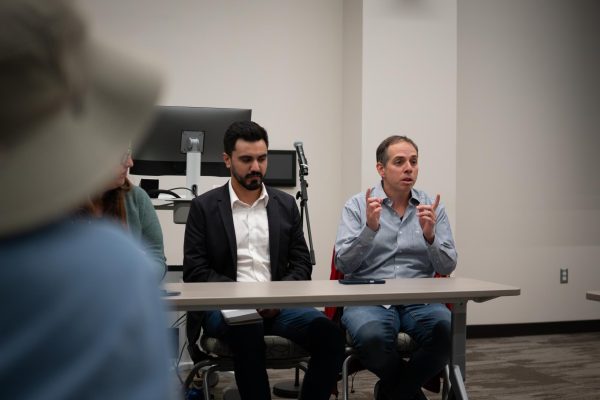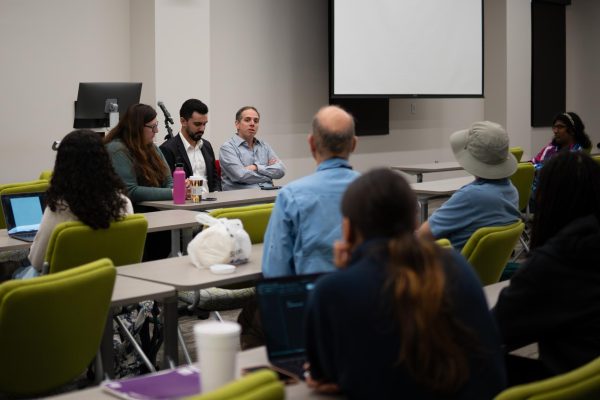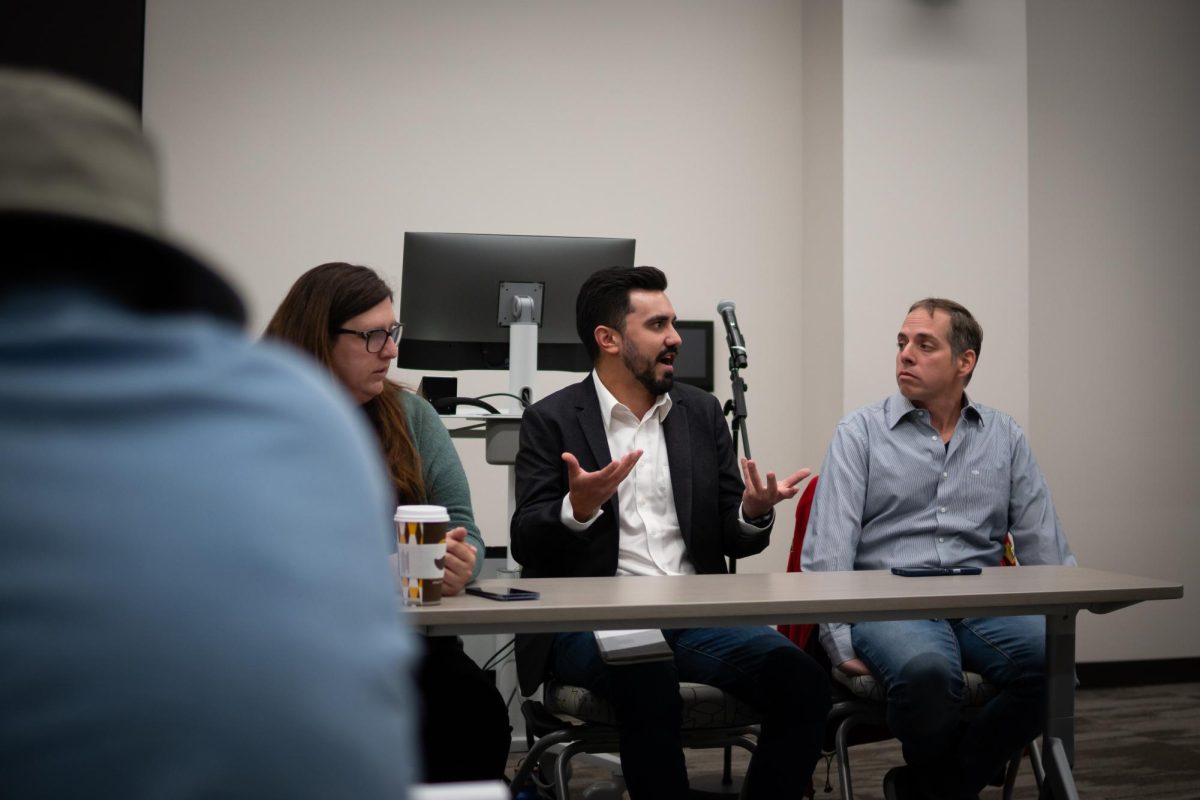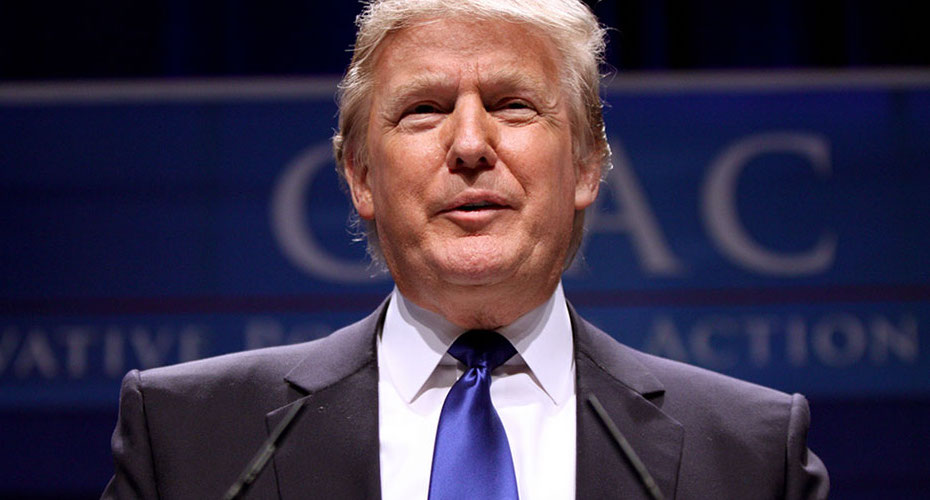While the 2024 presidential election has come and gone, questions still linger amongst the community about the results and how the country shifted more toward the Republican vote this election. This election sparked widespread discussion about shifting voter behavior, analyzing key issues that could have shaped the outcome. At a recent post-election panel hosted at UTEP on Nov. 14, political science experts dissected the results, offering insight into national and local trends, surprises and what lies ahead.
The panel featured UTEP political science professor Dr. José Villalobos and visiting scholar Dr. Marquez Zárate from Brown University.
Election Overview: The Numbers
Professor Melissa Baker, serving as the panel’s moderator, opened with a summary of the election results. Under the winner-takes-all system used by most states, Donald Trump won the presidency, securing 312 electoral votes to Kamala Harris’s 226. Trump will begin his four-year term in January 2025.
Republicans maintained control of the Senate with 53 seats and gained a majority in the House with 218 seats. Although final results in some districts are pending, the outcomes suggest a shift toward Republican dominance in Washington.

Inflation Concerns and Anti-Establishment Sentiments
The economy emerged as a pivotal factor in voter decision-making. Many Americans, still grappling with the lingering effects of inflation despite post-COVID recovery efforts, turned out in support of Trump, who has continued to remind voters that inflation wasn’t a problem under his prior leadership.
“There’s a lot of people out there who are pro-choice and liberal leaning in the swing states that say, ‘I don’t like what happened there, but I’m still going to vote on the economy. I am worried about democracy, but what really worries me more is how much this or that costs,’” said Villalobos.
The panelists also noted the strong appeal of “anti-establishment” candidates. For Trump, his ability to position himself as an “outsider” resonated with voters who felt disconnected from traditional political elites.
“Being an outsider is a lot less difficult than having a toe over the establishment line,” said Villalobos.
Villalobos remarked on Trump’s strategy, stating, “He stuck to the economy and immigration and got all this turnout from where he needed to get it.”
Harris, despite a strong campaign effort, faced the uphill battle of limited time to establish her platform and overcome Trump’s sustained popularity.
“It’s an uphill battle of three and a half months versus eight years of Make America Great Again (MAGA) campaigning,” said one audience member.

Shifts Among Key Voter Demographics
A significant portion of the panel discussion focused changing political sentiments for Latino voters, particularly along the Texas border and in other heavily Latino-populated areas. Marquez highlighted a trend in South Texas: “Twelve out of 14 counties along the border in Texas, not including El Paso, flipped towards Trump.” A similar trend was observed in California, where three of the four counties with the largest Latino populations shifted Republican.
This trend among Latino voters, particularly Latino men, has garnered attention. The demographic went from a 23% advantage for Biden in 2020 to a 10%advantage for Trump in 2024. However, Latinas remained more aligned with Democratic candidates, showing only a modest shift.
“The Latino vote should never be taken for granted. You really have to do your homework on whether you’re running at the local, state, or federal level and make sure you’re asking like ‘What is going to be important to Latino constituencies, even down to our neighborhoods?’,” said Villalobos.
Democracy and Women’s Rights Concerns Fall Flat
While concerns about the state of democracy and abortion rights were expected to mobilize voters, data has shown that their impact has fallen short of predictions in this election.
Polling revealed that while over 90% of liberal, progressive, and independent-leaning female voters opposed what has been happening since the overturning of Roe v. Wade, only 14% listed it as their top voting issue. Similarly, efforts by the Harris campaign to portray Trump as a threat to democracy did not yield the anticipated voter turnout.
“That’s been a surprise,” said Villalobos. “And I don’t think people have an answer for why yet, but that’s going to be studied while we see the effects of it over the next couple of years.”

What to Expect
The panel concluded by addressing the broader implications of the election results. With a Republican-controlled presidency, Senate, and House, and a conservative-leaning Supreme Court, significant policy changes are anticipated.
“We are in a kind of a new world moving forward,” said Villalobos. “The Trump administration will have an opportunity to really put policies into place, affecting social issues, foreign policy, and how elections are run.”
For young voters and college students in El Paso, the discussion served as a reminder of the importance of engagement and awareness.
“We always say the polls are measuring people’s opinions and who they prefer. But that’s different than who’s going to actually go vote,” said Villalobos.
Whether the results reflect a growing discernment towards the political left is to be decided, but Villalobos emphasized that one thing is for certain: “Whatever political party you’re from, whatever ideology you carry, registering to vote and voting early, they’re always helpful to your cause.”
Rumi Sevilla is a staff reporter for The Prospector and may be reached at [email protected]








